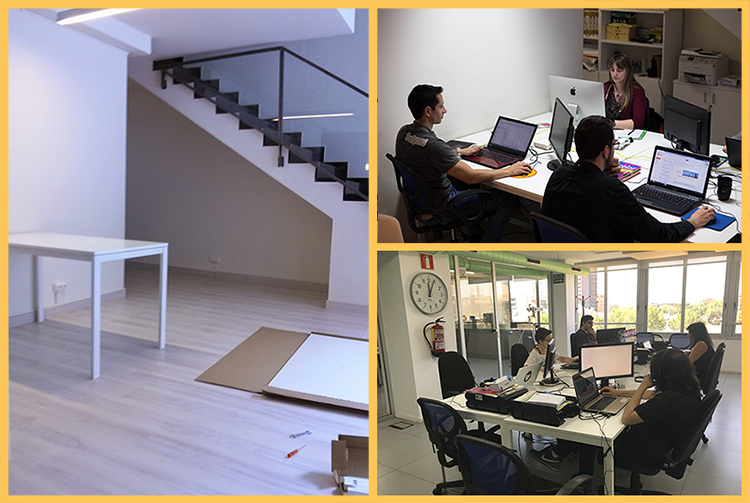Digitalmakers History
Our beginnings
There are many marketing agencies of all kinds. Unlike what many might think, they are quite different from each other. Depending on the client and the objective they are serving, one type of agency may fit better than another. The DNA of DigitalMakers comes from the technological world; we are technologists who have evolved over the years to have a direct impact on businesses. We achieve this by centralizing data in a CRM, specifically using HubSpot as our customer relationship manager.
In our beginnings in 2013, the initial focus was on designing and developing websites. From a physical office, clients would request the creation of a corporate website to establish their presence in the digital environment. However, we soon encountered a challenge that led us to reinvent ourselves. After a few months, these clients needed to start selling online, but they were not achieving the desired frequency.
A year later, we centralized our focus not only on technology, web design, and development but also on how to truly impact businesses. DigitalMakers began to view technology as an ideal means to generate this impact on companies. We embarked on a process of training that transformed our company from a web development agency into an agency truly dedicated to making a real impact on businesses. With this transformation, we started creating greater added value for our clients.

A CRM to organize the flow of data
Once consolidated and knowledgeable in our activity, we confirmed the feeling that the importance of businesses primarily relied on data and how it was treated. Data was crucial for making decisions as they supported the measures to be taken. The projects we worked on often involved multiple tools such as WordPress or Magento for websites, Google Analytics for website traffic volume, Hootsuite for managing social media, Mailchimp for email campaigns, among others. Each tool provided insights into a part of the process, but obtaining a comprehensive overview of the customer journey was quite challenging.
As a consequence, exporting data required a considerable amount of time and the processing had to be done in various spreadsheets. This involved numerous manual processes, and the risk of human error was high. Additionally, the perspective offered by these tools was historical, lacking real-time insights. Consequently, the essential aspect of reading and analyzing data was overshadowed, becoming secondary. This misalignment needed a solution.
To address this issue, we decided to centralize the data. We explored different CRM platforms like Zoho, Pipedrive, SalesForce, among others, but eventually, we chose HubSpot. We found that HubSpot was and still is the best fit for meeting the market's needs as well as our own. It aligned with our evolving design and approach, providing answers to a significant portion of our requirements and fitting well with our work style. Our journey with HubSpot began in collaboration with a client around 2017, and this marked the beginning of our significant revolution.
Since then, we have been working as we are now, defining goals and action plans with digital skills, but with a CRM that centralizes all the data. This enables us to have a clear understanding of what is happening in real-time. Additionally, it offers our clients the opportunity to provide better service to their customers, resulting in an improved value proposition and potential increase in sales.
DigitalMakers, current and future challenges
Since 2018, at DigitalMakers, we have been working in the same way. Firstly, we understand our clients' business by responding to the GPCT acronym: Goal (objectives), Plan (planning), Challenge (challenges), and Timing (timing). With this information, we assess how HubSpot can support and maximize the possibilities of achieving the defined objectives. One of the advantages of having data available across all departments (sales, marketing, operations, etc.) is that it reduces unnecessary interactions that do not add value. All departmental leaders have the necessary information to make decisions in their preferred format. This way, we enhance the quality of internal corporate interactions.
As a future goal, on which we have been working for some time, we focus on collaborating with companies whose objectives also include social responsibility. We seek collaborations that emphasize ethical values alongside their business relevance within their sector. Our impact on businesses is increasing, and it is crucial for us to prioritize social responsibility, especially regarding issues such as global warming, poverty alleviation, inequality, and discrimination.